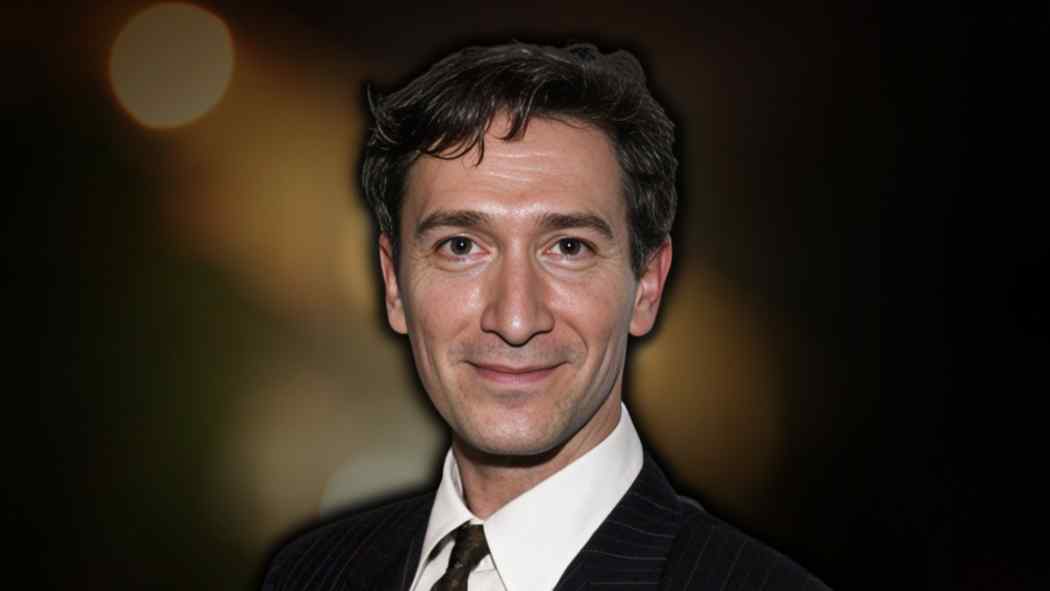Tristan Sturrock: A Versatile Cornish Actor Defining Stage and Screen

The name Tristan Sturrock carries weight in the British performing arts scene. Known for his commanding stage presence, emotional honesty and enduring connection to his Cornish roots, he represents the rare breed of actor who has excelled equally in theatre, television and film. His work combines physical storytelling, poetic depth and a commitment to truth that has earned him critical praise at home and abroad.
Early Life and Cornish Origins
Born in 1967 and raised in Upton Cross on the edge of Bodmin Moor, Cornwall, Tristan Sturrock grew up surrounded by rugged landscapes and traditional Cornish life. This environment shaped his understanding of authenticity and groundedness, qualities that would later distinguish his performances. His fascination with stories, myth and character led him naturally towards the stage, where he found both freedom and discipline.
By the mid-1980s he joined the Cornwall-based Kneehigh Theatre company, beginning a lifelong partnership that would define his career. Kneehigh’s unique style—blending music, movement, myth and humour—proved the perfect fit for Sturrock’s creative instincts. From the start, he displayed an ability to fuse physical performance with emotional clarity, helping to create some of the company’s most memorable works.
Theatre Career and Notable Productions
Tristan Sturrock’s theatre journey is central to his identity. With Kneehigh, he performed in acclaimed productions such as Tristan & Yseult, Brief Encounter, A Matter of Life and Death, Rebecca, The King of Prussia, Treasure Island and The Riot. These shows toured internationally and earned critical acclaim for their innovation and emotional power.
Beyond Kneehigh, Sturrock’s collaborations with major institutions such as the Royal Shakespeare Company, the National Theatre, Bristol Old Vic and the Donmar Warehouse further cemented his reputation as a versatile and fearless performer. His stage work demonstrates his skill at merging text, gesture and atmosphere into a complete artistic experience.
Among his theatre triumphs, the one that stands out most is Mayday Mayday, a solo show he wrote and performed. The piece was inspired by his own real-life accident in 2004, when he fell during the Obby Oss festival in Padstow and broke his neck. Rather than shy away from the trauma, Sturrock turned it into a profound piece of theatre exploring survival, community and resilience. The production toured widely, including performances in New York and the UK, and later became an award-winning BBC Radio 4 adaptation.
Television Work
Tristan Sturrock transitioned seamlessly from stage to screen, bringing the same nuance and intensity to television roles. His portrayal of Officer Colin Hedges in Bad Girls introduced him to a mainstream audience, while his recurring appearances in Doc Martin as Danny Steel showcased his naturalistic screen presence.
Perhaps his most celebrated television role came with Poldark, in which he played Zacky Martin, a steadfast Cornish miner and loyal companion to Ross Poldark. The performance was widely praised for its authenticity—unsurprising given Sturrock’s Cornish roots. Across five seasons, he helped bring depth and humanity to the ensemble, earning recognition beyond the UK.
He has also appeared in The Crown as historian John Wheeler-Bennett, Endeavour as Dr Bernard Gould, and in dramas such as Three Girls, Holby City, The Bill, Garrow’s Law, Jamaica Inn and Malpractice. Each role, though varied in genre and scale, demonstrates his ability to inhabit characters with quiet authority and truth.
Film Contributions
Although theatre and television dominate his career, Sturrock has made notable appearances in film. His early role in Saving Grace (2000), a Cornish-set comedy-drama, reflected his enduring connection to his homeland. Later, in Disney’s Christopher Robin (2018), he appeared as Christopher’s father—adding a gentle warmth to a nostalgic family story.
Independent films such as Bait, My Policeman and Long Way Back further demonstrate his commitment to diverse storytelling. Regardless of the size of the production, Sturrock’s performances are marked by authenticity and craftsmanship.
The Power of Mayday Mayday
Mayday Mayday stands as one of the most important works of Tristan Sturrock’s life. After his devastating accident, he faced months of surgery and rehabilitation. Against daunting odds, he learned to walk again, though he continues to experience nerve damage. Rather than conceal this chapter, he transformed it into a piece of art that resonated with audiences worldwide.
The show combines humour, fear, gratitude and the rawness of survival. Sturrock uses storytelling, sound and movement to recreate the rescue and recovery, turning a moment of crisis into an exploration of human vulnerability. Critics hailed the work as a masterpiece of autobiographical theatre—deeply personal yet universally relatable.
Acting Philosophy and Style
Tristan Sturrock’s acting style blends physicality with sincerity. His roots in ensemble theatre taught him that performance is a collective art, not a solitary act. He often describes acting as a dance between voice, body and story.
His approach relies on authenticity rather than artifice. Whether playing a miner in Cornwall or a historical scholar in London, Sturrock seeks to inhabit rather than impersonate. The emotional depth of his performances often stems from this grounded perspective.
He also values storytelling that connects community, history and empathy. Many of his roles—especially through Kneehigh and Theatre Damfino, the company he co-founded—carry social and emotional resonance.
Personal Life
Tristan Sturrock is married to actress and director Katy Carmichael. Together they run Theatre Damfino, a Bristol-based company dedicated to immersive and experimental performance. The partnership reflects both his creative and personal harmony. They have three children and split their time between Cornwall and Bristol, maintaining a balance between family life and artistic exploration.
Despite his success, Sturrock remains closely connected to his Cornish heritage. He often credits the landscape and people of Cornwall for keeping him humble and inspired. This enduring relationship with his home region gives him a unique authenticity on stage and screen.
Influence and Legacy
What makes Tristan Sturrock exceptional is not just talent but integrity. He exemplifies an actor who builds his career around substance rather than celebrity. His body of work across four decades shows a consistent devotion to meaningful storytelling.
He also serves as a model for resilience. Turning a near-fatal injury into art demonstrates courage and creativity. Younger actors and theatre practitioners often look to him as an example of how personal truth can fuel professional strength.
Moreover, Sturrock represents the enduring vitality of regional British theatre. His career shows that world-class artistry can flourish outside London. By carrying the spirit of Cornwall into global stages, he broadens the definition of British performance culture.
Future Prospects
Looking ahead, Tristan Sturrock continues to balance stage and screen projects. Given his track record, audiences can expect further appearances in quality television dramas and independent films. Through Theatre Damfino, he will likely continue experimenting with forms that combine narrative, sound and physicality.
There is also potential for him to step more deeply into directing or mentoring, guiding emerging artists in the same collaborative traditions that shaped his own path.
Conclusion
Tristan Sturrock stands as one of Britain’s most accomplished and versatile performers. From his beginnings in Cornwall to international recognition, his career tells a story of artistry, perseverance and authenticity. Whether commanding a stage in Mayday Mayday, embodying a Cornish miner in Poldark, or lending quiet depth to a role in The Crown, he continues to inspire audiences and artists alike.
His journey is a testament to the power of storytelling, the resilience of the human spirit and the enduring value of staying true to one’s roots. With every performance, Tristan Sturrock reminds us that great acting is not about imitation—it is about truth.



